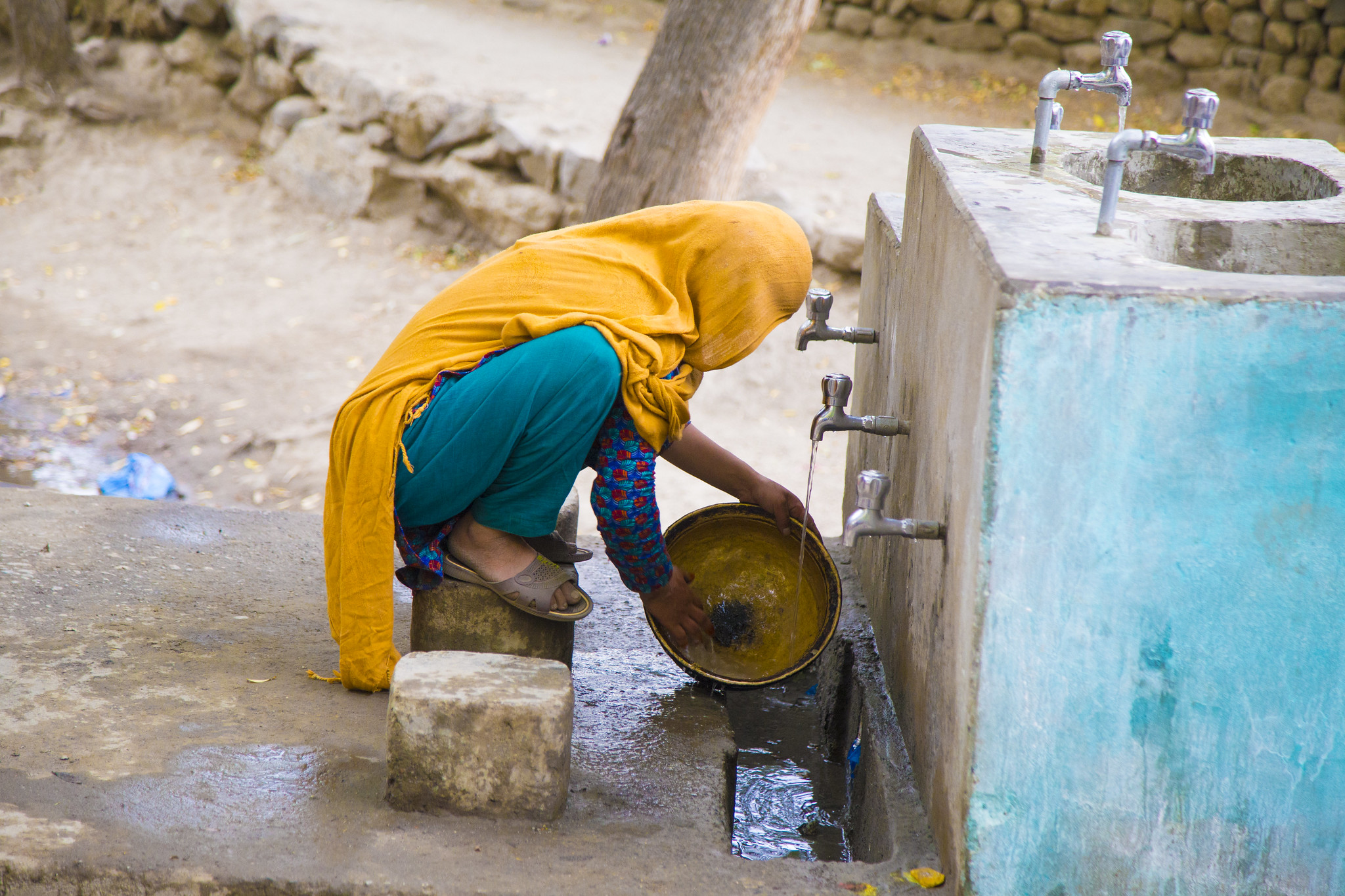Bushra Batool, a school teacher, had lived and worked in Skardu before moving to Gole village. Despite being located only 32 km away from the bustling city of Skardu in Gilgit Baltistan, Bushra felt a huge contrast moving to the picturesque Gole Tassu after marrying into a local family. She soon found that the residents of the village suffered from poor health and poverty. ‘Diseases such as gastrointestinal infections, typhoid, hepatitis were prevalent in the community- which not only had an economic cost but also impacted community members psychologically and emotionally’, Bushra notes, ‘impeding their participation in economic activities and contributing to poverty.’
The lack of sanitation facilities and clean drinking water, exacerbated by the impacts of climate change, had impacted female community members most. “In this village females were facing extreme difficulties due to unavailability of water. Women are responsible for household chores like cleaning, washing, fetching water and cooking, all of which are directly related to water. Girls are expected to help out with these chores, resulting in their frequent absence from school and low rate of enrolment,” said Bushra.
Mountain and Glacier Protection Organization (MGPO) was approached by the community members of Village Gole, with the request for a water and sanitation supply scheme. MGPO constituted a management committee, which had 50% representation of women, and trained the committee members in basic project management skills. Fresh spring water was channeled through underground pipes and delivered to household clusters at nine different locations identified by women. The design of the water delivery infrastructure included outlets for domestic use as well as features for promoting hygiene. The water scheme now delivers safe drinking water to the community that meets the WHO standards.
Soon after the scheme became operational, there has been a marked decline in the incidence of water borne diseases and a steady increase in the rate of girl child school attendance. Women are demonstrating signs of physical and emotional well-being and have less hectic workloads.
“For generations the women in households had to spend many hours each day in search of water. Now it feels like we are part of the modern world with water available at our doorsteps”, says Fatima, a local village resident. “With decreased expenses on health, we are saving more and we can think of engaging in enterprise development and sending our children to better schools.”
The project may have made a meager contribution to SDG 6 and SDG 3 but it has made a monumental difference in the lives of the 2,880 people of the village.

 Locations
Locations


